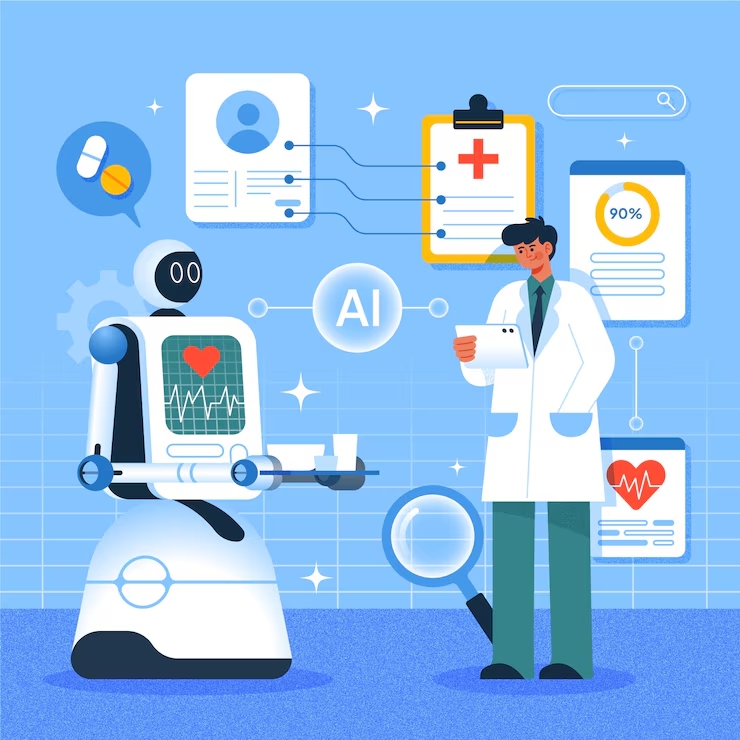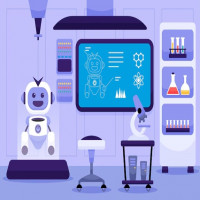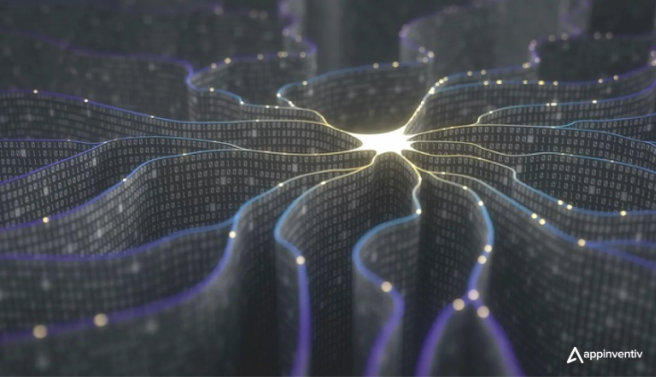Generative AI in Healthcare: Transforming the Future of Medicine

Strong 8k brings an ultra-HD IPTV experience to your living room and your pocket.
Generative AI is revolutionizing industries worldwide, and its impact on healthcare is nothing short of transformative. By combining cutting-edge artificial intelligence (AI) techniques with healthcare’s unique demands, generative AI in healthcare is enabling innovative solutions to some of the field’s most pressing challenges. From enhancing diagnostics to personalizing patient care, this technology is shaping a smarter, more efficient healthcare ecosystem.
This blog explores how generative AI is driving change, its key applications, challenges, and the promising future it holds.
What is Generative AI?
Generative AI refers to AI models capable of generating new content, including text, images, and even audio, based on existing data. Leveraging techniques like deep learning and neural networks, these models simulate human-like creativity.
In healthcare, generative AI finds applications in generating synthetic medical data, creating patient-specific treatment plans, enhancing medical imaging, and much more. Its ability to learn from vast datasets and generate actionable insights is redefining how healthcare providers deliver care.
Applications of Generative AI in Healthcare
1. Medical Imaging and Diagnostics
Generative AI models, such as GANs (Generative Adversarial Networks), are transforming medical imaging. These tools enhance image quality, detect anomalies, and even simulate new imaging data for training purposes.
For example, generative AI can produce high-resolution MRI images from lower-quality scans, improving diagnostic accuracy without increasing scanning time or costs.
2. Personalized Medicine
The advent of generative AI in healthcare is accelerating the development of personalized medicine. By analyzing patient-specific genetic data and medical histories, generative AI helps create tailored treatment plans, improving patient outcomes and reducing adverse effects.
3. Drug Discovery and Development
Generative AI is significantly shortening the drug development timeline by simulating molecular structures and predicting potential drug interactions. AI-driven tools enable researchers to explore new compounds and identify viable drug candidates faster than traditional methods.
4. Virtual Health Assistants
AI-powered virtual assistants are becoming invaluable for healthcare providers and patients alike. These assistants, fueled by generative AI, help answer patient queries, schedule appointments, and even monitor health conditions, offering round-the-clock support.
5. Synthetic Data Generation
The healthcare industry often faces data privacy concerns that limit access to real patient data for research and development. Generative AI addresses this issue by creating synthetic datasets that mirror real-world data while maintaining patient confidentiality.
6. Education and Training
Generative AI models are used to simulate realistic medical scenarios for training purposes, offering healthcare professionals a safe and controlled environment to hone their skills.
Benefits of Generative AI in Healthcare
Improved Efficiency: Automating time-consuming tasks allows healthcare providers to focus on patient care.
Cost Reduction: By accelerating processes like diagnostics and drug discovery, generative AI significantly reduces operational costs.
Enhanced Accuracy: AI-driven insights enhance diagnostic precision, minimizing errors and improving outcomes.
Data Security: Synthetic data protects patient privacy while supporting innovation.
Scalability: Generative AI solutions adapt to the growing demands of the healthcare sector.
Challenges in Implementing Generative AI in Healthcare
While the potential of generative AI in healthcare is immense, it comes with challenges:
Data Quality: AI models rely on high-quality data. Incomplete or biased datasets can affect performance.
Regulatory Compliance: Ensuring AI-driven solutions adhere to healthcare regulations, such as HIPAA, can be complex.
Integration: Incorporating AI into existing systems requires significant investment and planning.
Ethical Concerns: The use of synthetic data and AI decision-making raises ethical questions about accountability and transparency.
Skill Gap: Implementing and managing generative AI solutions demands expertise that many organizations currently lack.
Future of Generative AI in Healthcare
The future of generative AI in healthcare is incredibly promising. Emerging technologies like multimodal AI, which combines text, image, and sensor data, will further expand AI’s capabilities in diagnostics and patient care.
Additionally, advancements in federated learning will enable AI models to learn from decentralized datasets, ensuring privacy while enhancing accuracy. Healthcare providers will increasingly rely on generative AI to predict disease outbreaks, manage resources, and improve operational efficiency.
Best Practices for Adopting Generative AI in Healthcare
Start Small: Pilot AI solutions in specific departments before scaling.
Focus on Training: Invest in training for healthcare professionals to effectively use AI tools.
Ensure Compliance: Collaborate with legal and compliance teams to meet regulatory standards.
Partner with Experts: Work with AI developers experienced in healthcare applications.
Monitor Performance: Regularly evaluate AI models to ensure they meet clinical and operational objectives.
Conclusion
Generative AI is poised to transform healthcare in unprecedented ways. From advancing diagnostics to personalizing treatments, the applications of generative AI in healthcare are as diverse as they are impactful. While challenges remain, the benefits far outweigh the hurdles, making it a critical tool for shaping the future of medicine.
As the healthcare industry continues to embrace innovation, generative AI will undoubtedly play a pivotal role in improving patient outcomes, reducing costs, and enhancing overall efficiency. Organizations looking to stay ahead must invest in AI-driven solutions today to build a smarter, healthier tomorrow.
FAQs
1. What is generative AI in healthcare?
Generative AI in healthcare refers to the use of AI models to generate new data or insights that enhance diagnostics, treatments, and operational processes.
2. How is generative AI used in drug development?
Generative AI simulates molecular structures and predicts interactions, accelerating the identification of potential drug candidates.
3. Can generative AI improve patient care?
Yes, by personalizing treatment plans, enhancing diagnostics, and providing virtual health assistants, generative AI significantly improves patient care.
4. What are the challenges of using generative AI in healthcare?
Challenges include data quality, regulatory compliance, ethical concerns, and the integration of AI into existing systems.
5. How does generative AI protect patient privacy?
Generative AI creates synthetic data that mimics real-world datasets without compromising patient confidentiality.
6. What is the future of generative AI in healthcare?
The future involves multimodal AI, federated learning, and broader adoption of AI-driven solutions to enhance efficiency and outcomes.
Note: IndiBlogHub features both user-submitted and editorial content. We do not verify third-party contributions. Read our Disclaimer and Privacy Policyfor details.



